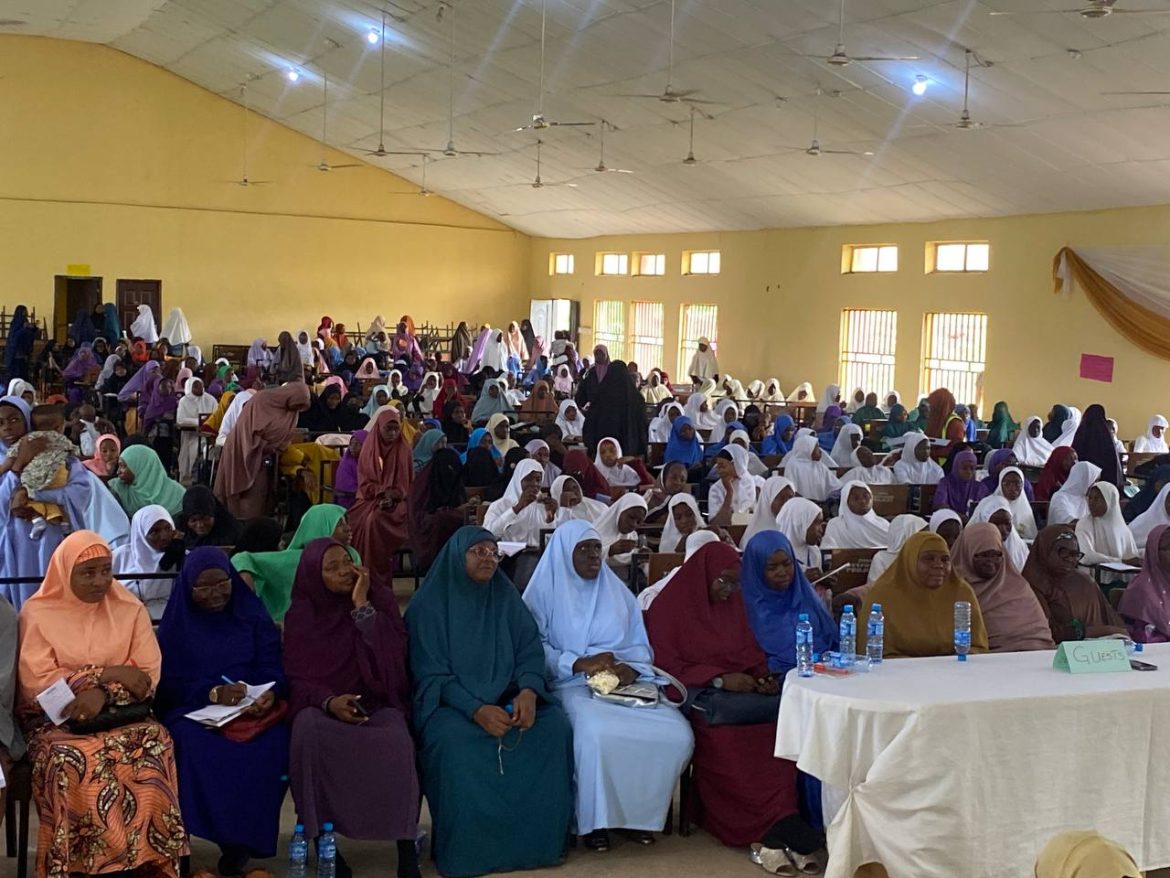By Fatima Mohammed-Lawal
A Muslim Group, Standard Bearers Islamic Organization has admonished Muslim Women to beware of the negative influences of On-line media.
The Group made the call in Ilorin during the 15th Sisters Annual Seminar themed; “Cyber Muslimah”.
Speaking at the occasion, Prof. Nafisat Adedokun-Shittu, an expert in Educational Technology of the University of Ilorin submitted that as a Muslimah in the digital age, its essential to navigate the On-line world while staying true to the Islamic faith and values.
Her paper presentation was entitled: “Digital Revolution: The Good, The Bad, The Ugly.”
Shittu who teaches in the Faculty of Education of the University, described digital revolution as the advancement of technology from Analogue electronics and mechanical devices to the digital technology.
The expert elaborated that the digital revolution has brought about advancement in global communication information, adding that it has improved communication and collaboration.
“The digital social platform has made connection, communication, selling and buying easier.
“You can connect with friends, families and co-workers in different worlds with tools like Zoom, Google, Meet and Skype among others,” she said.
Shittu observed that it has made life easy, as there are new opportunities for education, employment and entrepreneurship as a result of the digital revolution.
“As cyber muslimah you can enrich your opportunity to deepen your understanding ans connection with faith and community.
“You can build a spiritual support network and aurround yourself qith like minded Muslim women who share your values,” she said.
She also added that Muslims can discover Islamic literature, poetry and visual arts to appreciate the richness of Islamic heritage.
The don advised Muslim women to align intention to use technology for the good of human.
She however warns against using On-line media to bully and backbite other people, which goes against the tenets of Islamic beliefs.
Shittu also frowned at some sisters, who have mastered the art of online begging, adding that they go to the extent of lying and extorting different people.
Also in her presentation, Hajia Sherifah Ajibade, the CEO of Baytur Rahma Orphan Foundations, Lagos noted that Muslims must be very particular about promoting their health at all times
Ajibade who spoke on the topic titled: ” Alternative Medicine: Finding Healing from Forgotten Sources”, assert that prevention is best cure.
She added that people should seek means to attain good health and avoid sickness as much as possible.
She described health as the complete physical, mental and social well-being, not just absence of disease or infirmity.
According to her, the five pillars of health includes stress and hormones, nutrition and detoxification, movement and fitness, and also sleep.
She stated that orthodox medicine is basically currative while our forgotten sources are mostly preventive.
Ajibade added that nutrient and sleep determine most of what we are and how functional our systems are working.
She advised people to sleep between six and eight hours, adding that it restores, relive and revitalizes the body.
She pointed out that some of the forgotten medicines are water, as the about 60 percent of the body is composed of water
“The prophet Muhammad (SAW) has advised to keep one-third of our stomach free, and to eat in moderation,” she said.
Ajibade also advised on consumption of vegetables, fruits and foods rich in antioxidants, while warning against stuffs that aid accumulation of toxins such as sugar, excess oil, tobacco ans sedentary lifestyle.
Earlier in her welcome address, Barr. Aishah Adekunle, the Female Coordinator of Standard Bearers Organization explained that the Seminar seek to explore the intersection of faith, technology, and wellness.
She added that this includes exploring digital revolution and its impact on our lives as Muslim women.
Adekunle noted that in the digital world, we find ease in connectivity, access to knowledge, and global community building.
“We can harness technology to amplify our voices, share our stories, and support one another,” she said.
